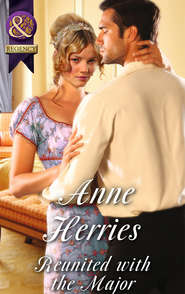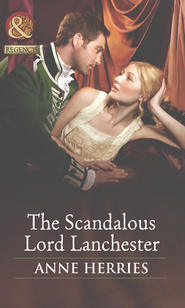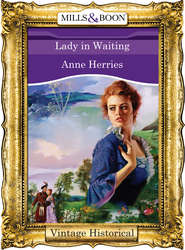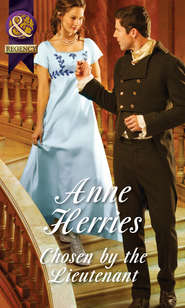По всем вопросам обращайтесь на: info@litportal.ru
(©) 2003-2025.
✖
Bartered Bride
Настройки чтения
Размер шрифта
Высота строк
Поля
‘He might,’ Sir Charles said. ‘Rothsay will not take this well.’
‘Supposing I did what Clarice suggested?’
He stared at her. ‘Take her place, you mean?’
‘Yes. She says the marquis doesn’t love her.’
‘They only met twice to my knowledge.’ Lottie’s father looked at her with dawning relief in his eyes. ‘You wouldn’t do it—would you?’
‘Yes, I shall,’ Lottie blurted unthinkingly, desperate not to see her father suffer any more distress. She almost denied it instantly, but the look of relief in her father’s eyes prevented her from turning back. ‘Clarice told me that all Rothsay wants from his wife is an heir—and that it was always to be more of a marriage of convenience.’
‘Yes, he was clear that was all he wanted.’ Sir Charles seemed to have shed ten years in an instant. ‘If you could bear it, Lottie—it would be an end to my problems.’
‘Yes, of course I can.’ Lottie forced a smile. ‘Most girls marry for money or position, so why shouldn’t I?’
What else could she do in the circumstances? If she did not take her sister’s place, Aunt Beth would be left homeless, her father might end in a debtor’s prison; though he had given the family nothing but trouble over the years, Lottie remained devoted to her father. No, she couldn’t bear for her family to suffer if there was something she could do to prevent it.
Chapter Two
‘Are you certain you wish to go through with this, Lottie?’ Her father reached for her hand, which was trembling slightly as the carriage horses began to slow to a steady walk. In another few minutes they would arrive at the marquis’s country house and it would be too late to run back. ‘I can tell him you are unwilling and ask him to give me time to pay.’
‘How can you pay, Papa?’ Lottie turned her lovely green eyes on him with a hint of reproach. ‘I have thought long and hard about my decision. Clarice will not marry him. She’s run away and we’ve none of us any idea where she is; besides, Aunt Beth is terrified of losing her home with you. How could she live on fifty pounds a year? I should have to find work to help support us both.’
‘I am ashamed to have brought you to this,’ Sir Charles said. ‘I know well that your sister is selfish,’ he added and looked rueful. ‘She takes after me, while you have your mother’s giving nature. I would not have minded that devil being married to Clarice, for I know she would have given as good as she got—but you may be hurt, Lottie.’
‘I am stronger than you imagine, and, as I’ve said, there is no choice.’ Lottie smiled at him. ‘Now, Papa, you must be careful when calling me Lottie.’
‘Rothsay knows nothing of you. He will merely think it a pet name, which of course it is, Charlotte.’
‘Well, we must be careful all the same.’ Lottie took his hand. ‘As I told you, Papa—I shall see if his lordship will release us from the debt without marriage, but if he will not I shall become his wife. It is perhaps my only chance of marriage and I know I should like to have children, so it will not be so very hard for me.’
‘Will it not, truly?’
Lottie dropped her eyes. She did not wish her father to know that it was the end of her naïve dreams of finding love and happiness. Clarice had told her the marquis was a terrible rake. Clearly, she could not expect to find happiness with her husband, but at least her aunt would have a home—and she might find content in her children.
‘No, Father. I believe I shall be quite content—unless the marquis is good enough to relent.’
‘I do not think he is likely to change his mind,’ her father said and sighed. ‘I fear you will just have to make up your mind to marry him.’
Lottie did not reply. The carriage had just now drawn to a halt before a grand and imposing house built at some time in the last century, and her heart was beating so fast that she could not have spoken if her life depended on it.
‘The gentleman and young lady have arrived, sir.’ Nicolas turned his head as his butler spoke. ‘I have shown them into the green drawing room, as you requested. Shall I ask Mrs Mann to take in some refreshment?’
‘Yes, you may bring it in ten minutes,’ Nicolas said. ‘I shall greet my guests.’
He was unsmiling as he walked briskly towards the green drawing room at the back of the house. He had waited for some protest, some inkling that the lady wished to withdraw, but none had been forthcoming. He could only hope that the young woman might give him some reason to request an end to this impossible arrangement.
‘Yes, Father, it is very beautiful,’ he heard the young woman’s clear voice as he stood outside the door. ‘I was just thinking how much Aunt Beth would love to live here. I wonder—’
The young woman broke off, turning to look at him with wide eyes as he entered, a faint flush in her cheeks. She was wearing a bonnet of chip straw tied with emerald ribbons, her carriage gown skilfully fashioned of velvet of a similar hue, and he was surprised. In Paris she had worn a gown that was, to say the least, bold, but this morning she looked a modest and very respectable young lady.
How dared she present herself as a demure country miss? Did she imagine he had such a short memory? His lips curled in scorn as his gaze swept over her. He thought the colour in her cheeks deepened. Was she remembering the night in Paris when he had caught her going through Ralph’s pockets?
‘Miss Stanton,’ he said and took two strides towards her, inclining his head. ‘Welcome to Rothsay Park. Sir Charles, how do you do, sir?’
‘Middling.’ Sir Charles looked hesitantly at his daughter. ‘I understand you plan to give a ball to announce your engagement to…my daughter?’
‘You would have preferred to give it yourself?’
The scorn in Nicolas’s voice assaulted his own ears. He was being rude to a guest and, as his father would have told him, that was unforgivable. In his father’s day it would have resulted in a beating and no supper. He added hastily to cover up his bluntness, ‘I thought it would be easier here for I have a deuced many relatives, and I fear they will descend in droves once the announcement is made.’
‘Ah, yes, well…’ Sir Charles floundered unhappily.
‘I am sure it will be much better held here, sir,’ Lottie said and smiled as she removed her bonnet, revealing hair dressed in waves back from her face and drawn into a secure double knot at the nape. In Paris her hair had been loose, tumbling on to her shoulders, as if she had just risen from bed—which she had. ‘I know my aunt will be very happy to visit. I do hope you will not mind my inviting her for the ball? There is no one else I truly wish to invite.’
‘Indeed? You have no relatives?’
‘Mama had one sister, who is now a widow and has no children. Papa has no family at all.’
‘Well, there is Cousin Agatha, Lottie,’ Sir Charles said. ‘You know what a tongue she has on her. If I do not invite her, she will never stop complaining.’
‘I think that perhaps I would rather not ask Cousin Agatha,’ she replied. ‘You should really call me by my name, Papa. The marquis will think my pet name unsuitable for the lady he intends to make his wife.’
‘Lottie?’ Nicolas raised his brows. ‘Is that not more usually given to those with the name of Charlotte?’
‘Mama liked the name. It was hers and it is also one of my names—everyone at home calls me Lottie.’
‘Do they? I wonder why. I thought Clarice eminently suitable for the young woman I met in Paris. It has rather more sophistication, I think?’
‘Yes, I am certain it has,’ Lottie agreed. ‘I am perfectly happy for you to address me as you please, sir.’
‘Are you indeed? Thank you, Miss Stanton. I shall give the matter some thought.’ He turned as the housekeeper entered with another maid bearing silver trays. ‘Ah, here is Mrs Mann with your tea—and something stronger for you, Sir Charles. If you’ll excuse me I have some business to attend to. Mrs Mann will take you up to your rooms when you have refreshed yourselves. I shall see you this evening before dinner.’
‘Thank you, sir. We are much obliged,’ Sir Charles said and nodded to the housekeeper as she indicated the Madeira wine. ‘Yes, ma’am, that will do nicely, I thank you.’
‘Miss Stanton, you will excuse me.’ Nicolas nodded to her abruptly and left the room.
‘Sir.’ She bobbed a curtsy, but not before he had seen a flash of anger in her eyes. He felt a flicker of satisfaction; that was better, he was getting to the real Clarice now.
Nicolas frowned as he strode from the house. His business with his agent would have kept, but he was not sure he could have controlled his temper much longer. How dared the lady look as if butter would not melt in her mouth?
Her smile had reminded him sharply of Elizabeth when they first met. She had seemed charming and innocent—but when he offered her his heart, she had laughed and told him she was looking for more than he could offer.
Clarice—or Lottie, as she seemed to prefer—was not Elizabeth, but Nicolas was no longer a green youth. If Lottie imagined he had forgotten that scene in the bedroom in Paris, she would soon learn otherwise.
He would not be rude to her in front of her father, but when they were alone, he would ask her what game she was playing.
Clarice was so right! Lottie’s hands curled into tight balls at her sides. What a rude, arrogant, cold, beastly man he was! She would have liked to give him a set down, for he had no reason to be so insufferably condescending. Papa had, it was true, lost more money than he could afford, but Rothsay could have insisted on being paid. He had accepted Papa’s offer of his own free will. The least he could do was to treat both Papa and her with respect.











